Other

“This is according to a team from Imperial College London and the Indian Institute of Technology (IIT) Guwahati who have found a new way to boost the amount of light LEDs produce. They report their innovation in the journal Light …
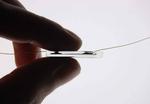
“Imperial College London bioengineers have found a way to create stretchy and squeezy soft sensing devices by bonding rubber to electrical components. Stretchy and squeezy soft sensors that can fit around body parts or squeezed in hands could be used …
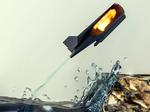
“A bio-inspired bot uses water from the environment to create a gas and launch itself from the water’s surface. The robot, which can travel 26 metres through the air after take-off, could be used to collect water samples in …

“When a fluid, such as water or air, flows fast enough, it will experience turbulence – seemingly random changes in velocity and pressure within the fluid. Turbulence is extremely difficult to study but is important for many fields of engineering, such …
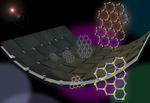
“Researchers have developed washable, wearable ‘batteries’ based on cheap, safe and environmentally friendly inks and woven directly into fabrics. The devices could be used for flexible circuits, healthcare monitoring, energy conversion, and other applications. The team, led by Dr Felice …
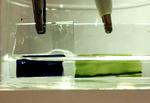
“A battery prototype has been designed using salt water and materials that are non-toxic and charge quickly, paving the way for new types of battery. The design principles behind the new prototype, which changes colour as it charges, could also …
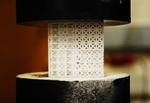
“Imperial materials scientists have created new artificial materials which combine our knowledge of metals with 3D printing. The findings could speed up the use of 3D printed materials in everything from construction and vehicles to medical devices. 3D printing is …

“Imperial researchers have devised a way to deposit metals onto fabrics and used it to insert sensors and batteries into these materials. A multidisciplinary team of researchers from Imperial College London led by Dr Firat Güder from the Department of …

“By 2050, batteries based on lithium-ion will be the cheapest way to store electricity, such as from solar or wind farms, according to a new study. The new research calculates the cost of storing energy with different technologies, including large-scale …

“A NASA spacecraft has analysed magnetic explosions on the opposite side of the Earth from the Sun, watching the process that creates auroras. The new study, including researchers from Imperial College London, showed that these events, though small, were fast …
